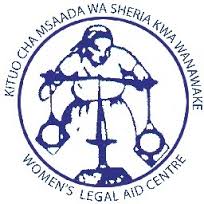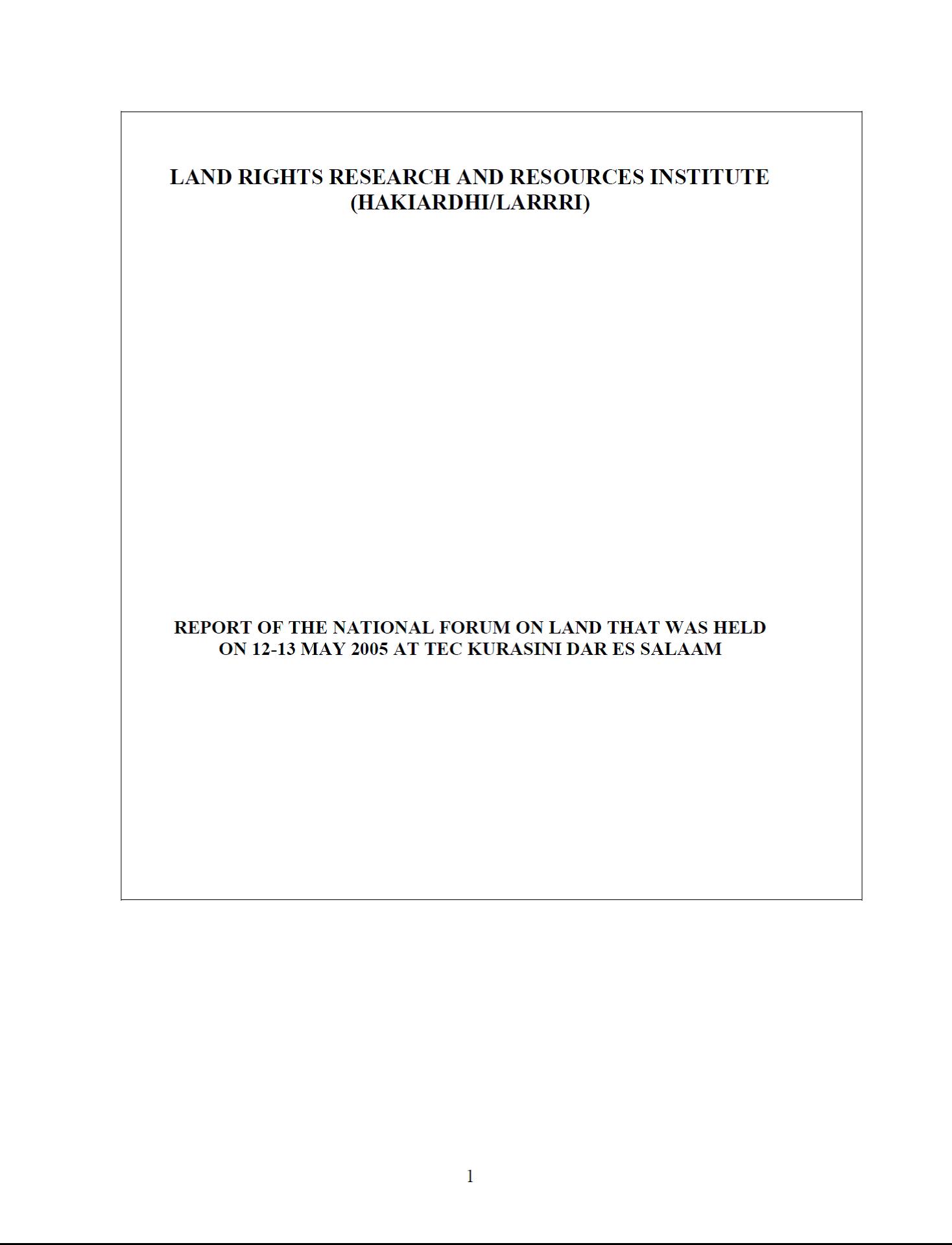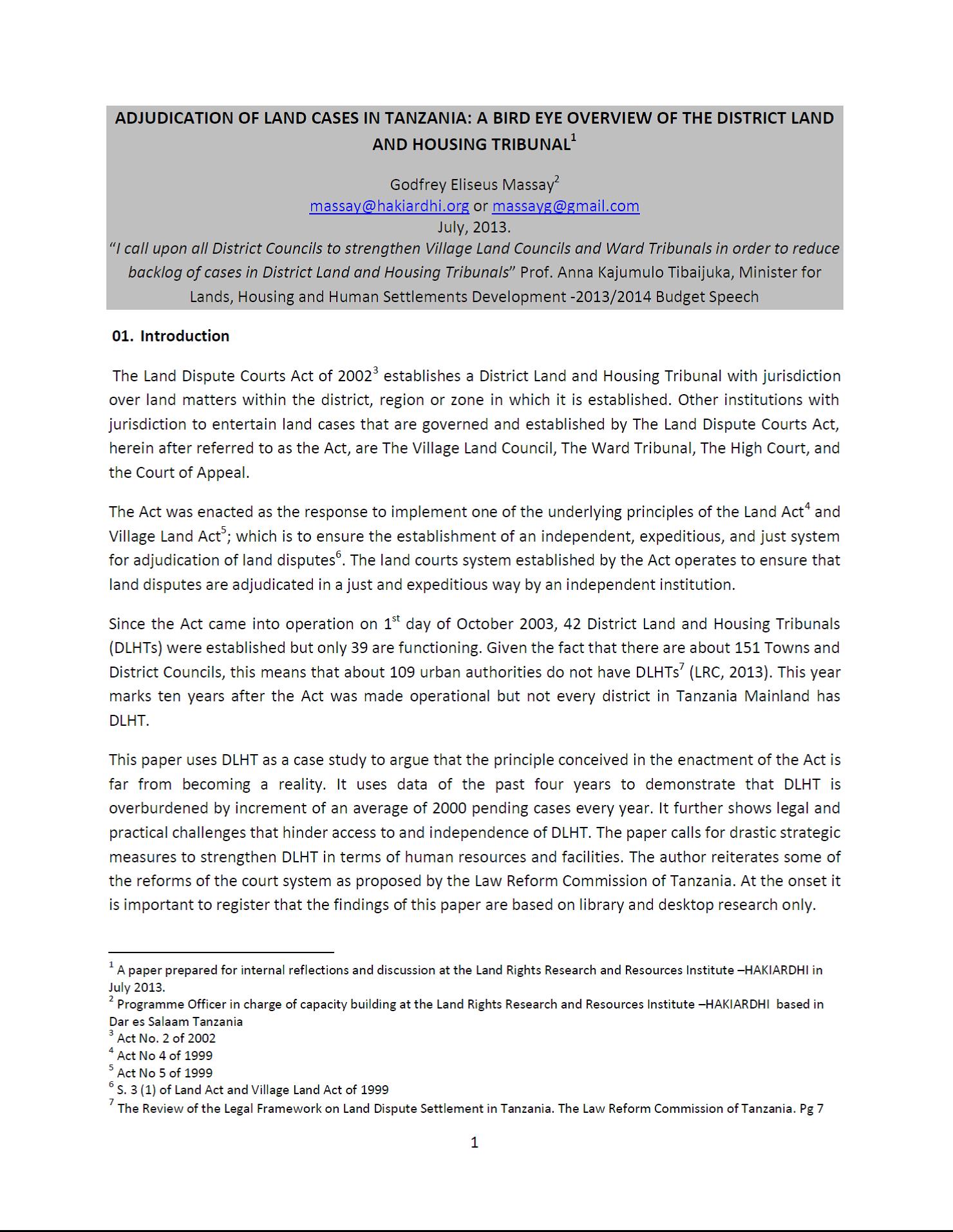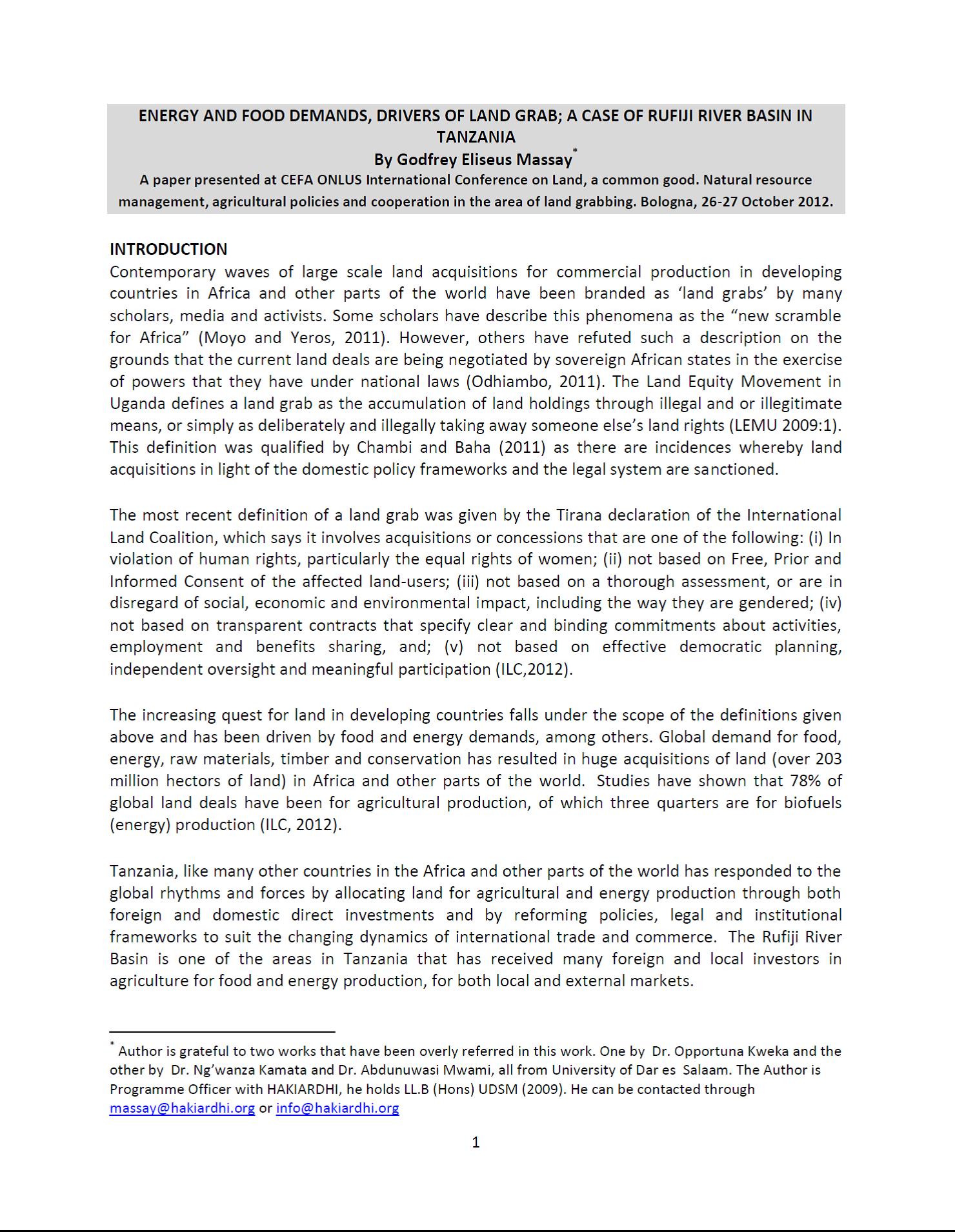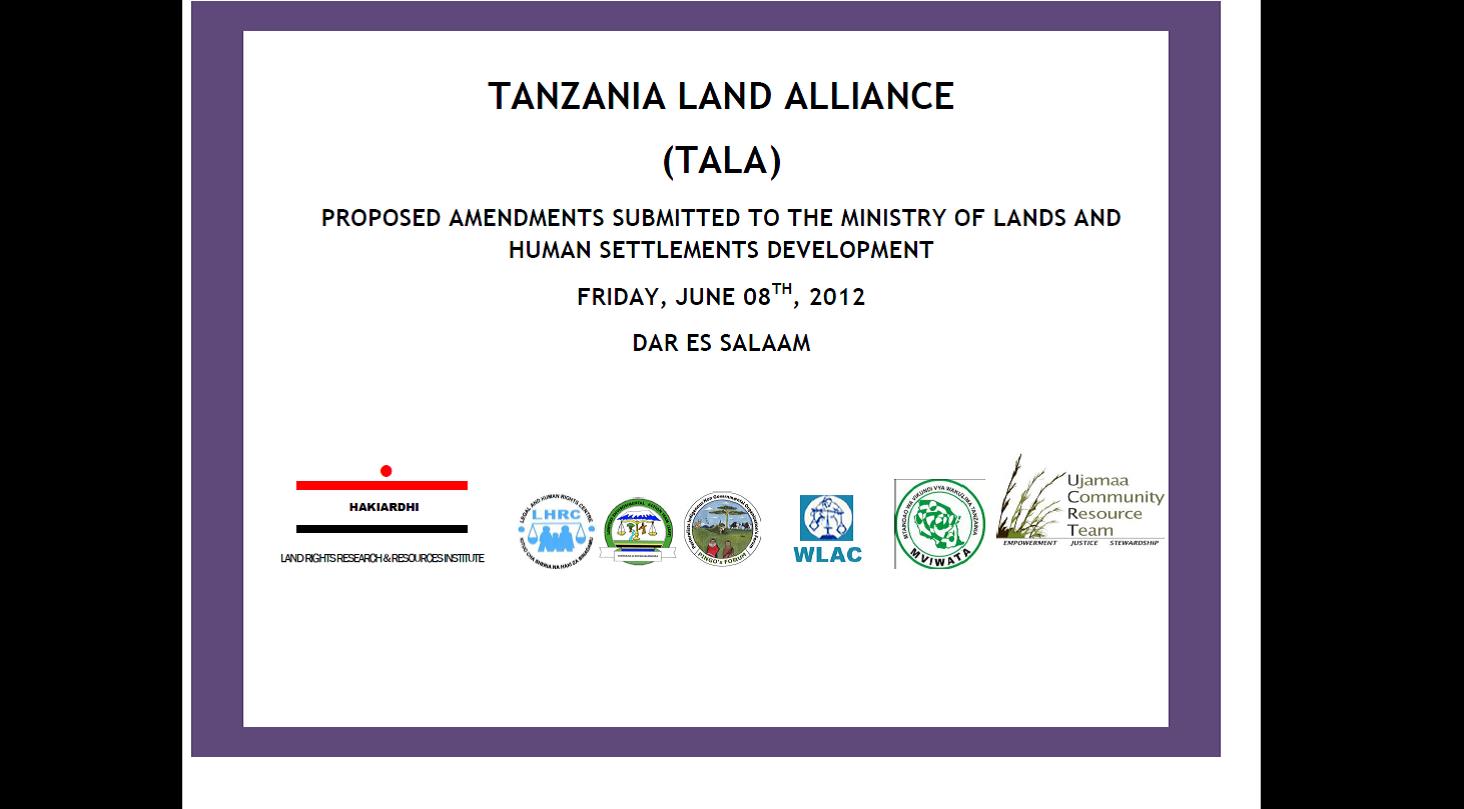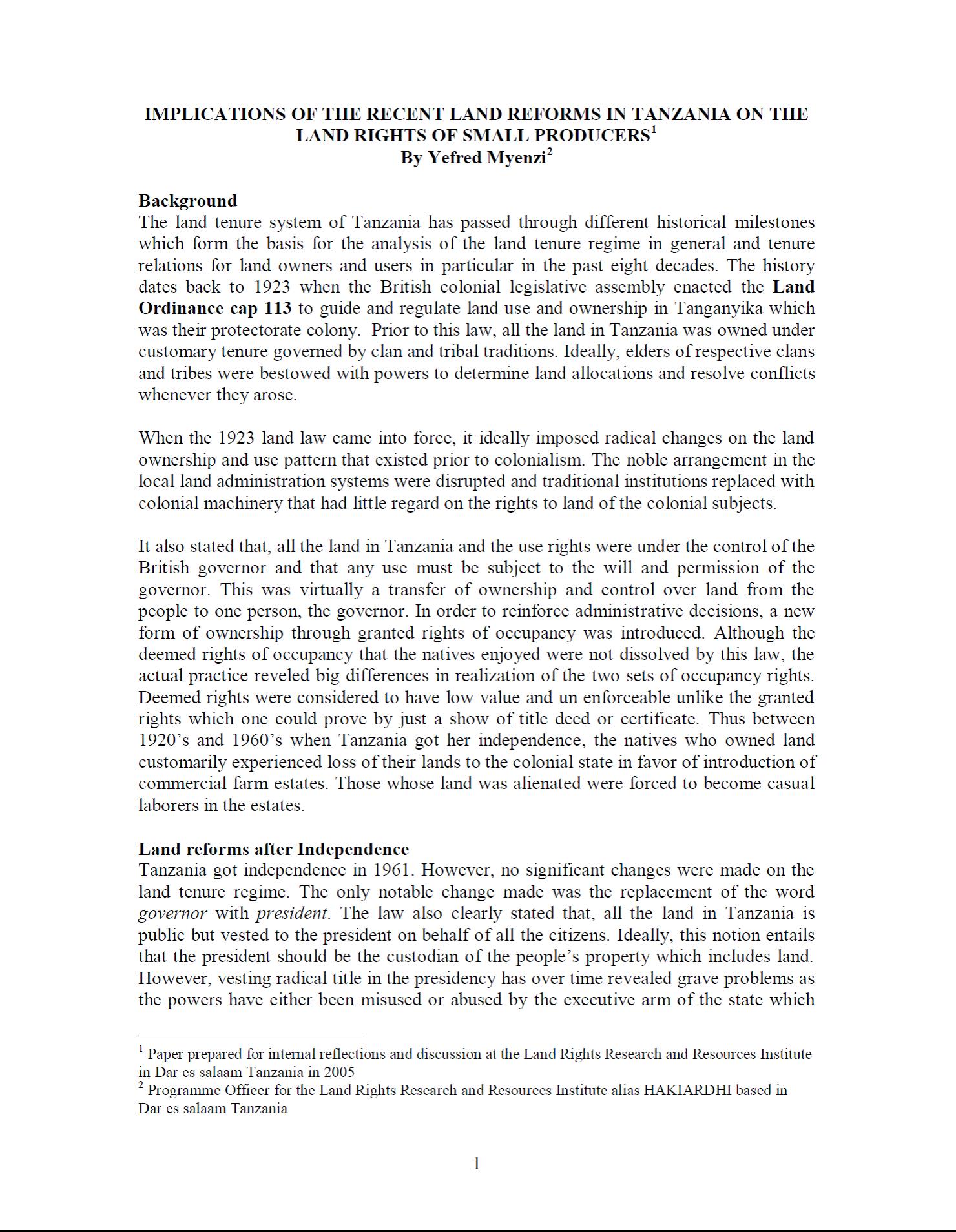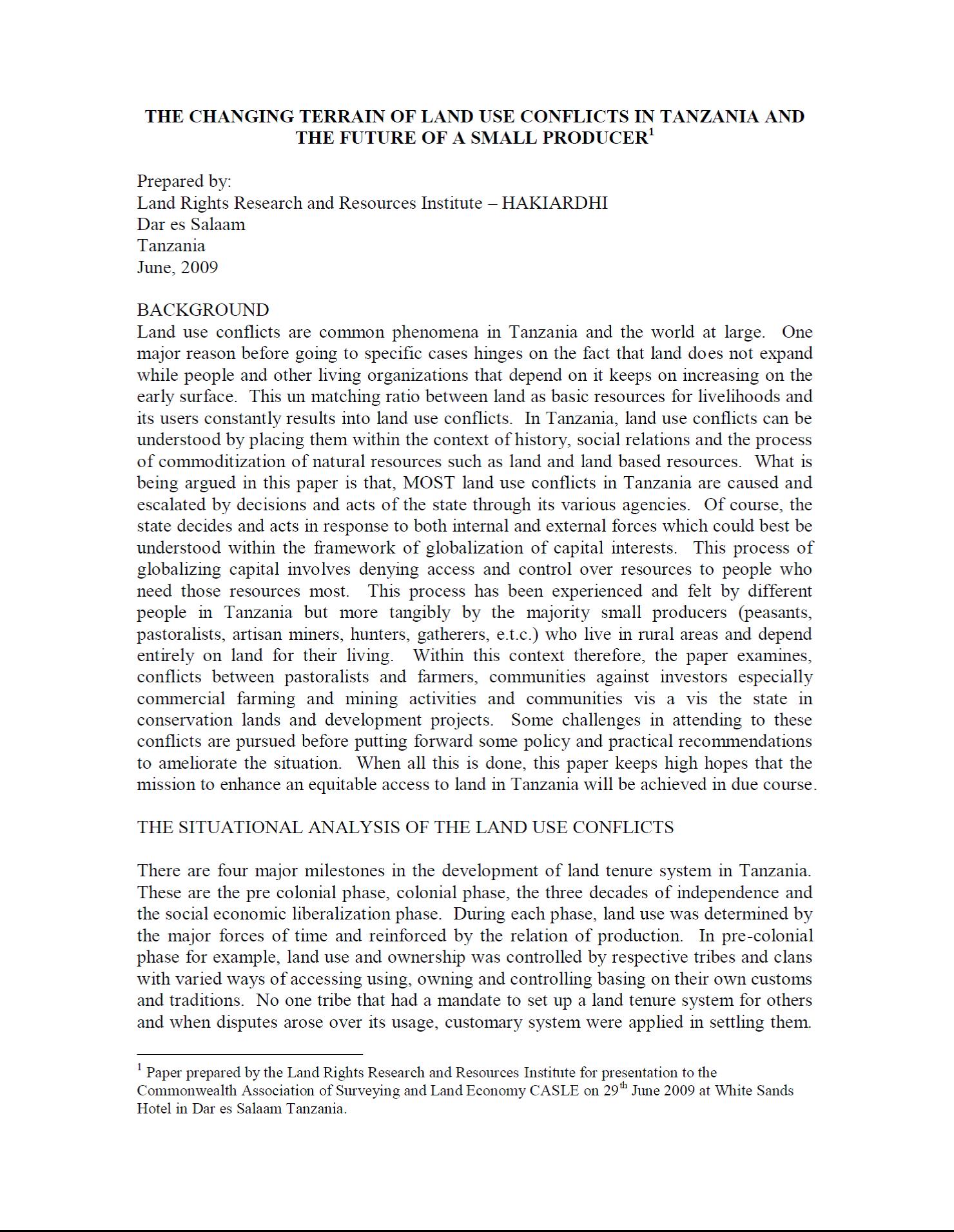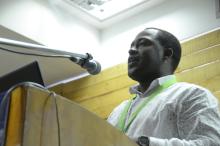
Topics and Regions
Godfrey Eliseus Massay is a lawyer and land tenure specialist.He has eight years of experience working on land rights and in the natural resource sector in Tanzania, and has written and published numerous articles on land rights in both national and international academic journals.
Details
Location
Contributions
Displaying 171 - 180 of 218Women Legal Aid Centre
A non-profit NGO that works to empower women to attain their rights and to improve vulnerable population’s access to justice across Tanzania.
OBJECTIVES:
- To provide legal aid services to women and children so as to safeguard their rights and improve their livelihoods.
- To facilitate the establishment and strengthening of paralegal units across Tanzania to foster community-based education on legal and human rights, and to improve timely access to quality legal aid.
Tanzania Women Lawyers Association
Tanzania Women Lawyers Association (TAWLA) is an NGO founded in 1989 and officially registered in 1990. The founding members comprised a professional group of women lawyers who felt the need for an organization that could promote an environment guaranteeing equal rights and access to all by focusing on vulnerable and marginalised groups especially women and children. The founding members also recognised the need for women lawyers to foster mutual support for each other in professional advancement and social responsibility. TAWLA has more than 570 members
Legal and Human Rights Centre
The Legal and Human Rights Centre (LHRC) is a private, autonomous, voluntary non-governmental, non-partisan and non-profit sharing organization envisioning a just and equitable society. It has a mission of empowering the people of Tanzania, so as to promote, reinforce and safeguard human rights and good governance in the country. The broad objective is to create legal and human rights awareness among the public and in particular the underprivileged section of society through legal and civic education, advocacy linked with legal aid provision, research and human rights monitoring.
The Report of the National Land Forum 2005
The Land Rights Research and Resources Institute held its second National level Public Forum on land on 12-13 May 2005. The two day forum was partly one of the planned activities in the Institute’s three year Strategic plan and a special event to commemorate the Institute’s tenth Anniversary. It thus took place along with other activities such as Training of Trainers (TOT) workshop, preparation and running of a documentary on land rights advocacy, special media programmes, Special theatre performance by Dhahabu theatre arts Group and moving into a more specious office premise.
Adjudication of Land Cases in Tanzania: A Bird Eye Overview of the District Land and Housing Tribunal
This paper uses District Land and Housing Tribunal (DLHT) as a case study to argue that the principle conceived in the enactment of the law that established the tribunal is far from becoming a reality. It uses data of the past four years to demonstrate that DLHT is overburdened by increment of an average of 2000 pending cases every year. It further shows legal and practical challenges that hinder access to and independence of DLHT. The paper calls for drastic strategic measures to strengthen DLHT in terms of human resources and facilities.
Energy and Food Demands, Drivers of Land Grab; A Case of Rufiji River Basin in Tanzania
Contemporary waves of large scale land acquisitions for commercial production in developing countries in Africa and other parts of the world have been branded as ‘land grabs’ by many scholars, media and activists. Some scholars have describe this phenomena as the “new scramble for Africa” (Moyo and Yeros, 2011). However, others have refuted such a description on the grounds that the current land deals are being negotiated by sovereign African states in the exercise of powers that they have under national laws (Odhiambo, 2011).
Land Rights Monitors and the Struggle for Land Rights in Agricultural Investment Areas
To ensure that there is sustainability at the community level in its land rights and governance training programme, Land Rights Research and Resources Institute (HAKIARDHI), a Tanzanian national level organization that spearheads land rights of small-scale producers, uses land rights monitors (LRMs) in its program areas. In each of the selected villages of the program districts, two LRMs (a man and a woman) who have received land rights training from HAKIARDHI are democratically elected by villagers.
Proposed Amendments Submitted to the Ministry of Lands and Human Settlements Development
A comprehensive legal analysis highlighting gaps and recommendations in the four selected land related legislations in Tanzania.
Implications of the Recent Land Reforms in Tanzania on the Land Rights of Small Producers
The land tenure system of Tanzania has passed through different historical milestones which form the basis for the analysis of the land tenure regime in general and tenure relations for land owners and users in particular in the past eight decades. The history dates back to 1923 when the British colonial legislative assembly enacted the Land Ordinance cap 113 to guide and regulate land use and ownership in Tanganyika which was their protectorate colony. Prior to this law, all the land in Tanzania was owned under customary tenure governed by clan and tribal traditions.
The Changing Terrain of Land Use Conflicts in Tanzania and the Future of a Small Producer
Land use conflicts are common phenomena in Tanzania and the world at large. One major reason before going to specific cases hinges on the fact that land does not expand while people and other living organizations that depend on it keeps on increasing on the early surface. This un matching ratio between land as basic resources for livelihoods and its users constantly results into land use conflicts.

